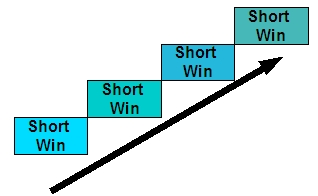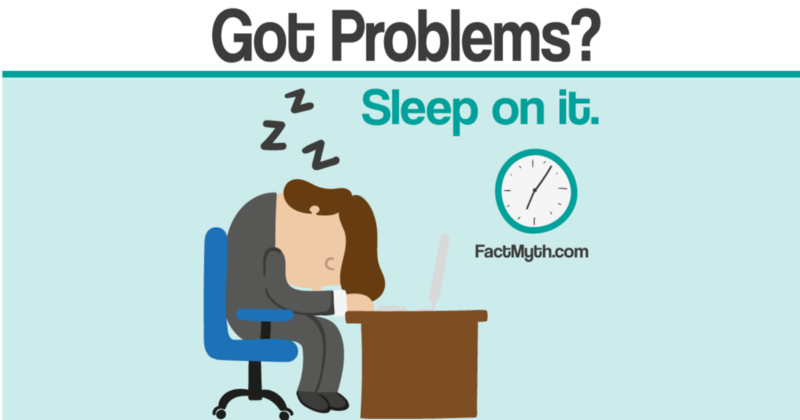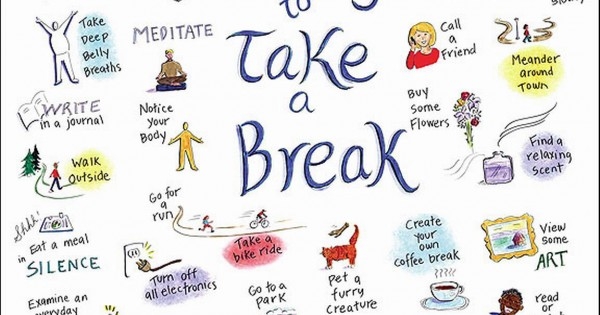The latest on all kinds of information, news, and resources that help you make working remotely better.
How to Overcome the 5 Top Challenges of Remote Freelance Work | Andrew Medal, Entrepreneur.com

Working remotely can feel isolated and lonely. You are no longer operating in your area of expertise and are constantly challenged by the burden of self-promotion and the struggles inherent in time management, travel between clients, invoicing and chasing after payments, to name just a few.
Here are some solutions to five of the top challenges I myself have faced:
The burden of self-promotion
Marketing doesn’t come naturally to many freelancers, yet a business cannot continue to grow without it. This means that a freelance cake decorator, dog groomer and technical writer all need to worry about ways to advertise their services.
The solution if this applies to you? Start creating content, whether it be video, audio (podcast) or written. Content is the key to showcasing your expertise. Content will allow people to discover you, and content will help solidify your expertise.
Follow contributors who write about topics you’re looking to provide your expertise on, and reach out on social platforms like Twitter or Instagram (Instagram DM still being the absolute best way to reach someone you’re hoping to connect with).
Working in a lonely solo void
While the freedom in remote freelance work may appeal to many, working in solitude may not, as FastCompany documented in a recent article. Human nature requires support and interaction, and constant isolation can wear you down. Our bodies only work at an optimal level for approximately 90 minutes at a time, so take your laptop and head to the nearest cafe for some company.
Co-working spaces are also all the rage these days, Harvard Business Review reported, as freelancers and small business owners are often looking to become part of a community. A well-designed work environment combined with a well-curated work experience enables coworkers to thrive in a way that office-based employees cannot.
Struggling with your calendar
I like to follow the Pomodoro rule for completing tasks. This technique can help you power through distractions, keep you hyper-focused and help you get things done in short bursts while taking frequent breaks to clean your brain and refocus. It’s sort of like short high-intensity weight training, versus long, slow cardio. The Pomodoro Technique consists of short bursts of work followed by a short rest break. You:
1. Create your list of tasks.
2. Prioritize the list.
3. Set the Pomodoro to 25 minutes (the Pomodoro in this context being a timer).
4. Work on the task until the timer rings, then put a check on your sheet of paper.
5. Take a short break (5 minutes is recommended, but play around with what’s best for you).
6. After every fourth Pomodoro, take a longer break (like 20 to 30 minutes).
The goal is to accomplish your tasks in short bursts. Ideally, each task can be done in one to two Pomodoros. The goal is to hold a limit to how many Pomodoros you do per day. Then, repeat the cycle the next day. I’ve found that my productivity shoots up under this technique. Here’s a great web app to track your progress called the Pomodoro Tracker.
Scope creep
What is scope creep? Scope creep describes those extra little client requests here and there. The need that that website you just created suddenly has for extra pages at the time of delivery. That graphic-design gig you took on that keeps accruing more and more changes …
Sometimes the creep is subtle, and sometimes it’s massive. But, if you let the scope creep once, it will never stop creeping.
The best, most obvious way to deal with scope creep is a thorough contract which clearly states that any additional work will be billed accordingly. I love BidSketch for quick, effective, template-rich contracts. If you create a contract once, you can save it and reuse it.
Chasing clients for payment
Payments are undoubtedly the most aggravating and awkward part of freelance work. So, protect yourself: Ensure a contract is in place for every job, and stipulate that you charge interest for late payments. Set up automated email reminders upon invoicing.
A software like Invoicely can help you with invoicing, with reminders to make sure you are on top of your finances. Invoicely works well because it allows you to set up late fees for invoices that are paid late or not at all. This is another tactic to help make sure clients pay on time.
The best tip I have learned is that you should always wait to deliver the final project until you have the final invoice paid. That way you retain ownership of the work before a client can run off without paying.
Remote freelancing presents as many challenges as it does benefits, despite the allure of flexibility. But, if being a freelancer brings you one step closer to fulfilling your dreams, then don’t allow any obstacles to deter you. If you’re the type of person who dreams of working for yourself, you will have what it takes to make it. Stay focused, stay inspired and stay hungry — to learn and grow.
Convert Your Office Job To A Work-From-Home Arrangement | Manon DeFelice, Forbes.com

A recent survey of over 5,000 workers by FlexJobs found that telecommuting 100% of the time is the most desired type of flexible work arrangement among job seekers. Such arrangements appeal strongly to working parents and others seeking better work-life balance.
Before you ask to switch to a telecommuting arrangement with your boss, consider the following tried-and-true tips.
1. Build your case with solid research. Instead of just listing all the personal reasons why you want to work from home, present your boss with a face-based presentation on how remote work arrangements can be a benefit to the company.
2. Offer examples of other companies’ flex policies. When you show your employer that other companies are going flex, he or she might be more inspired to implement a flexibility policy at your workplace. Present your boss or manager with sample flexibility policies, such as the nine examples included in this article from 1MFWF.
3. Try working flex once a week on a trial basis. If your manager needs convincing, let her test-drive your telecommuting capabilities one day a week to see how it goes. If your boss goes for it, use that day as an opportunity to show just how productive you can be when you work from home.
4. Be a communication whiz. Convince your boss how easy it is to stay closely in touch with you, no matter where you are. A wealth of technology can help teams stay connected around the world, from Skype and Google Chat to Basecamp, Slack and many more.
5. Offer to take a salary cut. Many people feel that working from home is a reward in itself, saving you the hassle of commuting and increasing your quality of life. You can assign a monetary value to it, and suggest a pay savings for the company by letting you telecommute.
6. Get another flexible job offer, and let your boss match it. A job offer from another company can be very motivating for your boss to let you switch to a work-from-home arrangement.
What if your boss can’t match the competing offer? Then maybe it’s time to make the move to a more forward-thinking company—and start living the work-from-home lifestyle that you envision for yourself.
4 Entry-Level Jobs That Will Prep You for Entrepreneural Success | Deep Patel, Entrepreneur.com

If you crave the life of an entrepreneur, don’t let the barriers to entry get you down. Take one of the following entry-level jobs and use your time in the workforce to get the experience you need to launch your own business.
1. Sales
A job in sales will teach you to stop trying to convince people that they need what you have and start listening to what they want. Once you recognize that the market dictates what you sell, and not the other way around, you’ll be prepared to run a successful startup.
2. Human Resources
HR pros keep businesses running. If you work as one, you will quickly learn how much things like timely payment, accurate sick-day counts and health insurance matter to workers. To keep your team happy, you’ll need to know what employees consider to be important. What better way to learn that than to take a job where they let you know?
3. Customer service
Customers range from the kindest people you will ever meet to those who become enraged when they can’t double their coupons. As an entrepreneur, you and your team will deal with all of them. Learn how to respond to customer complaints on someone else’s dime, so that when it’s your turn to do so, your learning experiences won’t have a negative impact on your bottom line.
4. Leadership
To be a truly successful entrepreneur, you must learn how to lead a team. Leaders invariably learn some tough lessons at the helm, but if you wait until you are running the whole operation, those lessons could cost you some of your best workers.
These positions and skill sets provide invaluable lessons for entrepreneurs, but they’re hardly the only ones. Reporters, insurance adjusters, accountants, teachers and consultants — these jobs and many others are full of learning opportunities for aspiring entrepreneurs.
If you have to work for someone else before you found your own company, don’t treat the opportunity with disdain. Learn everything you can on the job, so that when your time comes you can use those lessons to lead your company to success.
8 effective time management tips for entrepreneurs working from home | Toby Nwazor, e27.co

If you are working from home, you will understand how challenging it can feel at times to manage your time effectively so as to increase your productivity. Below are eight points that can help you do that.
1. Prepare your to-do list every night before you sleep
If you really want to manage your time effectively, then you should wake up with tasks on your mind. And the best way to do this is to make a list of the next day’s tasks at night before you go to bed. That way, you can maximise your morning hours and achieve a lot more before the rest of the world get to work.
2. Prioritise your tasks
It is not enough to prepare a to-do list, you need to prioritise your goals. Divide your tasks according to what you must do, what you should do, what you want to do just because it’s nice, what another person can do for you, and what must not be done.
3. Work out a schedule, and maintain it
Assuming you had to go to work, what would your schedule look like? Duplicate it for the house. If you decide to work from 7 am to 4 pm, so be it. Make the people you live with understand it. This means that there will be no running of errands around that time, neither would you decide to hang out with a friend that just came into town.
4. Define and own your workspace
A few weeks ago, I hired someone to redesign my office. I told him I wanted to have an ‘office feeling’ whenever I entered that particular room, and he did it. After that, I noticed that I work faster when I get into the office and focus on a particular task.
You should do likewise. This will help you more if you live with a someone. In that case, let them know that unless it is very important, your office is where you work and there should be no distractions.
5. Work when you are the most productive
Although you work at home, you need to find out when you are the most productive. The secret is to schedule your most important tasks at that period. That way, you will accomplish more in less time.
6. Cut off distractions
Cut off every distraction. This could entail telling your family, or the people you live with not to disturb you when you are at work. Make them understand your schedule.
7. Avoid clutter
Don’t allow your workspace to be cluttered. This includes arranging your system files and folders and managing your email better too.
8. Take brain breaks regularly
You must try to avoid having burnouts at all costs. This is especially important if your job requires creativity. Work at a stretch for some time, but make sure to schedule breaks into your plan. This is the time you get to rejuvenate, listen to music, call a friend, or maybe just read a novel.
When you do this, you will come back rejuvenated and ready to take on more tasks.








 Always aim for high-quality results for high-importance tasks. It’s that simple!
Always aim for high-quality results for high-importance tasks. It’s that simple!
